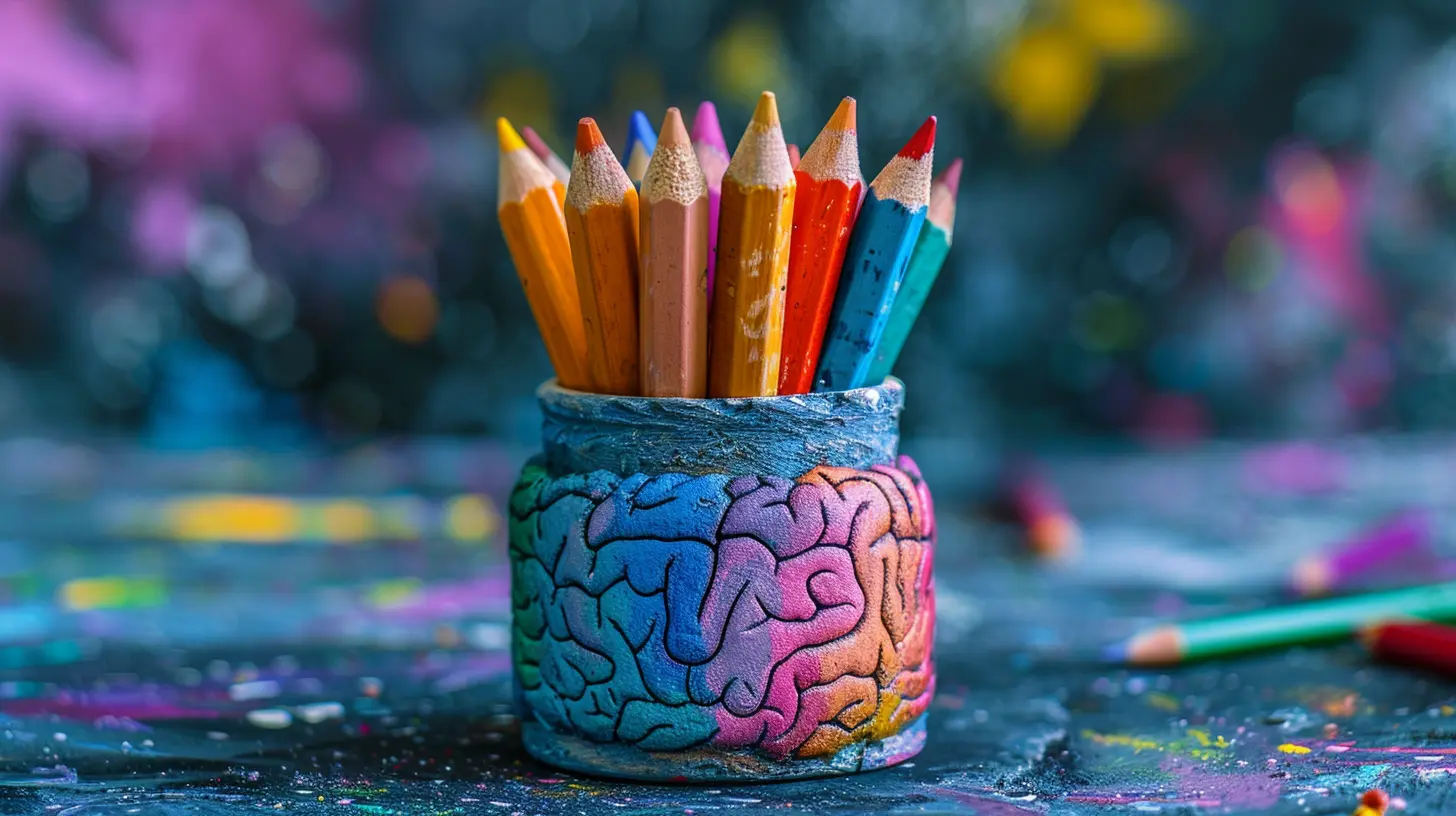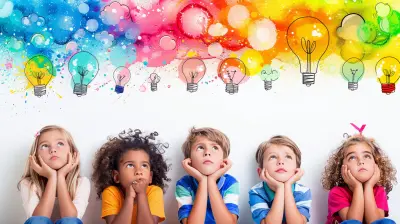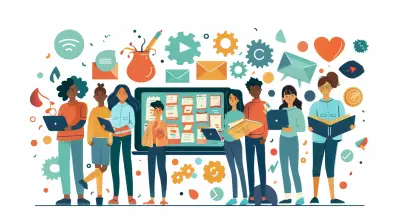13 March 2025
In today's fast-paced world, learning and adaptation have become more critical than ever. But here's the thing – learning isn't just about memorizing facts or passing exams. It’s about how you approach challenges, how you handle failures, and most importantly, how you view your own potential. That’s where the concept of a growth mindset comes in.
So, what exactly is a growth mindset? How does it impact your learning journey? And most importantly, how can you develop it? Well, buckle up, because we’re about to dive deep into the nuts and bolts of building a growth mindset for learning. Ready? Let’s go!

What is a Growth Mindset?
First, let’s break it down. A growth mindset is the belief that your abilities, intelligence, and talents can be developed over time through dedication, hard work, and learning from mistakes. In contrast, a fixed mindset is the belief that you're either "born with it" or you're not – that your abilities are static and unchangeable.To put it simply: If you have a growth mindset, you see challenges as opportunities to grow. If you have a fixed mindset, you see them as roadblocks that confirm your limitations.
Why Is This Important?
Because your mindset shapes how you perceive the world. If you believe you can improve, you're more likely to put in the effort, take risks, and bounce back from setbacks. If you don’t, you might avoid challenges and give up too easily. In the context of learning, this can make all the difference between reaching your full potential or staying stuck in a rut.
The Science Behind a Growth Mindset
Before we get into how to develop a growth mindset, it’s worth understanding the science behind it. Research by Stanford psychologist Carol Dweck, who coined the terms "growth mindset" and "fixed mindset," has shown that our brains are more malleable than we think.Neuroplasticity – the brain's ability to reorganize itself by forming new neural connections – means that with practice and effort, we can literally get better at things. Think of your brain like a muscle: The more you use it, the stronger it gets. The more you challenge it, the more it grows.
Pretty cool, right?

Benefits of a Growth Mindset in Learning
So why should you care about developing a growth mindset? Here are some of the benefits:- Increased Motivation: When you believe you can improve, you’re more likely to put in the effort.
- Resilience: A growth mindset helps you bounce back from failures, seeing them as learning opportunities rather than dead ends.
- Lifelong Learning: You won’t be afraid to try new things or tackle difficult subjects, because you know you can always improve.
- Better Performance: Studies show that students with a growth mindset tend to perform better academically because they focus on effort and strategy rather than innate ability.
Alright, now that we’ve covered the basics, let’s get into the actionable stuff – how can you develop this mindset?

1. Embrace Challenges
Look, nobody likes failing. But if you want to develop a growth mindset, you need to change how you see failure. Instead of looking at challenges as something to shy away from, see them as opportunities to learn.When you’re faced with a difficult task, remind yourself: “This is how I grow.” Some of the best learning happens when you're outside your comfort zone. It’s like going to the gym – you don’t build muscle by lifting light weights; you build it by pushing your limits.
Actionable Tip:
The next time you're faced with a challenge, instead of thinking, "I can't do this," ask yourself, "How can I do this?" This simple shift in thinking can make a world of difference.2. Learn from Feedback
Let’s be real – nobody enjoys criticism. But feedback is one of the most powerful tools for learning and growth. Instead of seeing feedback as a personal attack, see it as a roadmap to improvement.In a fixed mindset, feedback is often taken as proof of inadequacy. In a growth mindset, feedback is viewed as valuable information that can help you get better. Even if the feedback stings, there’s usually a nugget of truth in there that can help you improve.
Actionable Tip:
The next time someone gives you constructive criticism, instead of getting defensive, ask yourself, "What can I learn from this?"3. Celebrate Effort, Not Just Results
Too often, we focus on outcomes – the grade, the promotion, the final product – and forget about the effort it took to get there. But in a growth mindset, the process is just as important as the result.When you focus on effort, you reinforce the idea that hard work and persistence lead to improvement. This encourages you to keep going, even when the results aren’t immediate.
Actionable Tip:
Start celebrating your effort and progress, no matter how small. Keep a journal and jot down what you worked on today, how you pushed yourself, and what you learned. Over time, you’ll start to see just how far you’ve come.4. Reframe “Failures” as Learning Opportunities
If you’re serious about developing a growth mindset, you need to learn how to fail well. Instead of seeing failure as a reflection of your abilities, see it as a stepping stone to success. Failure isn’t the opposite of success – it’s part of the journey.Think about it: Every time you fail, you learn something new. You learn what doesn’t work, you learn where you need to improve, and you learn how to do better next time.
Actionable Tip:
The next time you experience a setback, instead of thinking, “I’m not good at this,” ask yourself, “What did I learn from this, and how can I improve?”5. Cultivate a Love for Learning
People with a growth mindset see learning as a lifelong journey, not a destination. They’re constantly seeking out new knowledge and skills, not because they want to be the best, but because they love the process of mastering something new.If you want to develop a growth mindset, you need to fall in love with learning. Be curious. Ask questions. Embrace the beginner’s mindset, even if you're an expert in one area.
Actionable Tip:
Dedicate some time each day to learning something new. It doesn’t have to be related to work or school – it could be a new hobby, a skill, or even just reading about a topic that interests you. The key is to stay curious and keep growing.6. Surround Yourself with Growth-Oriented People
You’ve probably heard the saying, “You are the average of the five people you spend the most time with.” Well, it’s true. If you surround yourself with people who have a fixed mindset, their attitudes can rub off on you. But if you’re around people who believe in growth and self-improvement, their mindset will influence you in a positive way.Look for supporters, mentors, and friends who encourage you to take on challenges, push your limits, and learn from your mistakes.
Actionable Tip:
Make a conscious effort to spend time with people who inspire you and challenge you to grow. Whether it’s a study group, a professional network, or even a friend who’s constantly learning, these relationships can help reinforce your growth mindset.7. Practice Self-Compassion
Developing a growth mindset doesn’t mean you’re going to be perfect all the time. You’ll still have moments of frustration, doubt, and even failure. But here’s the thing: Growth mindset isn’t about being perfect; it’s about recognizing that growth takes time.Be kind to yourself. When things don’t go your way, don’t beat yourself up. Instead, remind yourself that learning is a process, and that setbacks are part of the journey.
Actionable Tip:
The next time you make a mistake or fall short of your goal, practice self-compassion. Instead of saying, “I’m terrible at this,” say, “I’m still learning, and that’s okay.”8. Set Learning Goals, Not Just Performance Goals
There’s a difference between performance goals (e.g., getting an A on a test) and learning goals (e.g., understanding the material thoroughly). Performance goals focus on the outcome, while learning goals focus on the process of improvement.When you set learning goals, you shift the focus from being the best to becoming better. This helps you maintain motivation and reduces the fear of failure, because the goal is to improve, not to be perfect.
Actionable Tip:
Next time you set a goal, ask yourself, “What do I want to learn from this?” instead of “How well do I want to perform?”Conclusion
Developing a growth mindset isn’t something that happens overnight. Like any skill, it takes time, practice, and patience. But the good news? It’s entirely within your control. By embracing challenges, learning from feedback, celebrating effort, and reframing failures, you can shift your mindset and unlock your full potential as a learner.Remember, it’s not about being perfect. It’s about growing, improving, and becoming the best version of yourself. So, go ahead – start developing your growth mindset today. You’ve got this!









Thane Kirk
Embracing challenges and learning from failure are key to nurturing a growth mindset.
April 2, 2025 at 2:19 AM